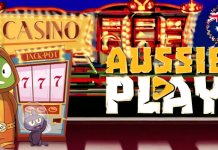Free online poker allows you to play poker games on the internet without using real money. You can enjoy different variants like Texas Hold’em or Omaha without any financial risk. It is a great way to practice, enhance your skills, and have fun without the stress of gambling with real money.
- Strategic Thinking: Poker requires strategic thinking and decision-making skills. Analyzing probabilities, evaluating risks, and making calculated moves enhance your critical thinking abilities.
- Mathematics and Probabilities: Poker involves understanding mathematical concepts like odds, expected value, and pot odds. Constantly calculating probabilities sharpens your mathematical skills.
- Emotional Control: Poker teaches emotional control and resilience. Managing your emotions during both winning and losing streaks is crucial. It helps develop patience, discipline, and the ability to handle stress in real-life situations.
- Risk Assessment: Poker trains you to assess risks and rewards. Understanding the concept of risk-reward ratios can be valuable in various aspects of life, such as investing, business decisions, and personal relationships.
- Decision-Making: Poker demands quick decision-making under pressure. Evaluating incomplete information, adapting to changing circumstances, and making optimal choices can enhance your decision-making skills.
- Reading People: Poker involves reading opponents’ body language, facial expressions, and behavior patterns. Developing these observation skills can help you detect deception, understand non-verbal cues, and improve your overall interpersonal communication.
- Patience and Persistence: Poker teaches patience and the value of persistence. The game requires waiting for favorable opportunities and staying focused during long periods of inactivity.
- Money Management: Poker necessitates effective money management. Learning to budget, set limits, and manage your bankroll responsibly can translate into improved financial management skills.
- Social Interaction: Poker is a social game that brings people together. Playing poker with friends or participating in tournaments fosters camaraderie, networking, and the opportunity to meet people from different backgrounds.
- Entertainment and Recreation: Poker is an enjoyable recreational activity. It provides a break from daily routines and can be a source of entertainment, relaxation, and stress relief.
- Memory Enhancement: Poker improves memory skills as players need to remember the patterns of play, opponents ‘tendencies, and previous hands. This exercise strengthens memory retention and recall abilities.
- Adaptability and Flexibility: Poker teaches adaptability and flexibility. Adapting to different playing styles, adjusting strategies, and handling unexpected outcomes cultivates a flexible mindset that can be valuable in various situations.
- Focus and Concentration: Poker requires intense concentration and focus over extended periods. Developing these skills through poker can enhance your ability to concentrate on other aspects of life, such as work or academics.
- Learning from Mistakes: Poker provides a platform to learn from mistakes. Analyzing past hands and identifying areas for improvement helps in developing self-awareness and continuous personal growth.
- Competition and Challenge: Poker offers a competitive environment that fosters personal growth. Challenging yourself against skilled opponents motivates self-improvement, goal-setting, and a drive to excel.
- Problem-Solving: Poker presents complex problems that need to be solved in real-time. Developing problem-solving skills in the game can improve your ability to tackle challenges outside of poker.
- Cultural Understanding: Poker is a global game played by people from various cultures and backgrounds. Engaging in poker can foster cultural understanding, promote diversity, and enhance your ability to connect with individuals from different walks of life.
- Relaxation and Mindfulness: Poker can serve as a form of mindfulness practice. Being fully present in the game, observing the cards, and staying in the moment can promote relaxation and mindfulness.
- Enhancing Self-Confidence: Poker success builds self-confidence. Making sound decisions, reading opponents correctly, and winning hands can boost your self-esteem and belief in your abilities.
- Personal Growth: Ultimately, poker offers opportunities for personal growth and self-improvement. The skills and qualities developed through poker can have a positive impact on various areas of life, including work, relationships, and personal development.
- Networking Opportunities: Poker tournaments and games bring together people from different backgrounds and professions. Engaging in poker can provide networking opportunities and connections that may be beneficial in both personal and professional spheres.
- Analytical Skills: Poker hones your analytical skills by constantly assessing situations, and opponents’ behaviors, and interpreting information to make informed decisions. These skills can be applied to problem-solving in different contexts.
- Adaptation to Uncertainty: Poker involves playing with incomplete information and adapting to uncertain situations. Learning to make decisions in ambiguous and unpredictable circumstances can help develop adaptability and resilience in real-life scenarios.
- Time Management: Poker teaches effective time management as players need to make decisions within specific time limits. This skill can translate into better time management and productivity in other areas of life.
- Community Engagement: Poker communities exist both online and offline, offering platforms for discussions, strategy sharing, and learning. Engaging with these communities fosters a sense of belonging and provides opportunities to learn from experienced players.
- Honing Observation Skills: Poker sharpens your observation skills as you analyze opponents’ behavior, detect patterns, and make deductions based on available information. This skill can be valuable in everyday life situations, such as negotiations or conflict resolution.
- Creativity and Innovation: Poker requires creative thinking to come up with new strategies, approaches, and bluffing techniques. Nurturing creativity and innovation in poker can spill over into other areas, fostering a more innovative mindset.
- Sportsmanship and Respect: Poker promotes sportsmanship and respect for opponents. Learning to win graciously, lose with dignity and treat others with respect translates into better interpersonal relationships and conflict-resolution skills.
- Psychological Insight: Poker provides insights into human psychology, as players attempt to read and manipulate their opponents. Understanding psychological principles such as bluffing, risk aversion, and cognitive biases can be applied to better understand human behaviors in various contexts.
- Enhanced Concentration: Poker requires sustained concentration and mental focus. Regularly engaging in poker games can enhance your ability to stay focused for extended periods, which can be beneficial in academic or professional settings.
- Multitasking Abilities: Poker challenges players to manage multiple variables simultaneously. Juggling various aspects of the game, such as calculating odds, observing opponents, and making strategic decisions, can improve multitasking abilities in other areas of life.
- Mind Games and Deception: Poker involves strategic mind games and deception. Developing an understanding of these psychological tactics can help in navigating social situations and negotiations.
- Transferable Skills: Many skills developed in poker, such as risk assessment, decision-making, and emotional control, can be transferred to other areas, such as business, entrepreneurship, and investing.
- Improved Communication: Poker cultivates effective communication skills, both verbal and non-verbal. Expressing your thoughts clearly, reading others’ cues, and adapting your communication style are crucial aspects of poker that can be applied to various interactions.
In poker, the hand rankings from highest to lowest are Royal Flush, Straight Flush, Four of a Kind, Full House, Flush, and Straight, Three of a Kind, Two Pair, One Pair, and High Card. These rankings determine the value and strength of a player’s hand in the game.
In conclusion, understanding poker hand rankings is essential for assessing the value and strength of your hand during gameplay. From the highest-ranking Royal Flush to the lowest-ranking High Card, these rankings provide a framework for determining the winning hand in a poker game.



























